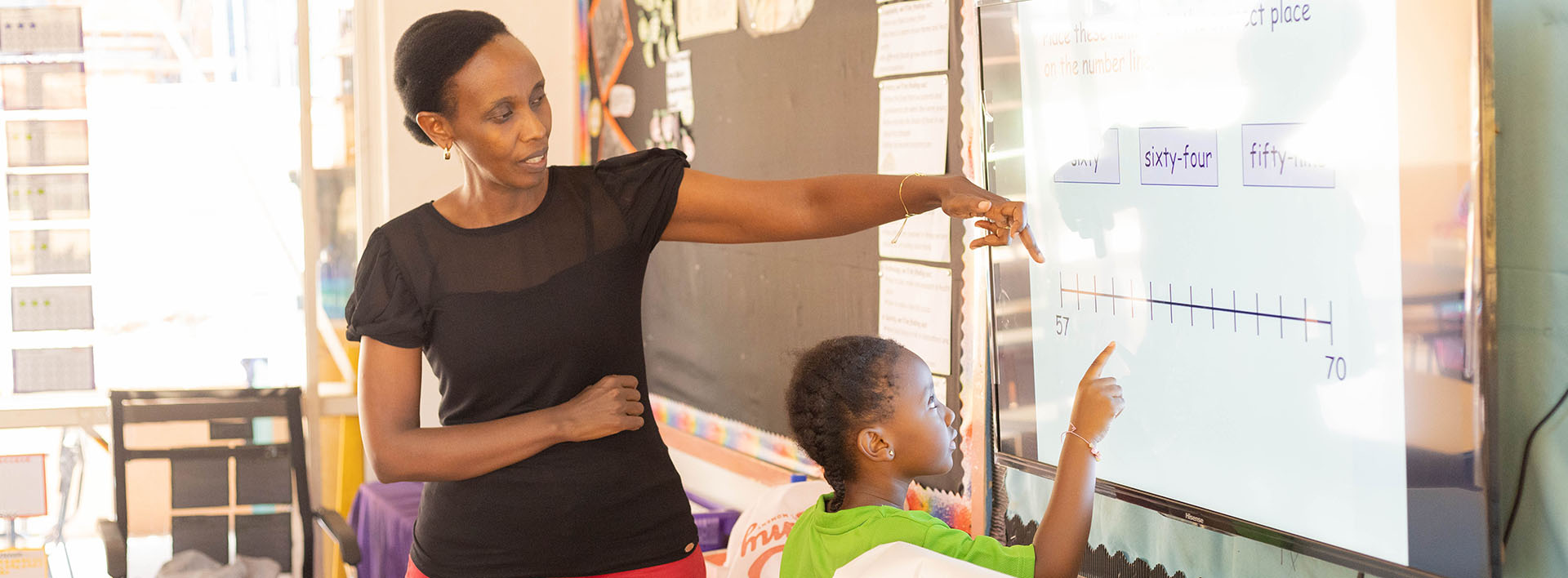
This stage consists of three core subjects Mathematics, English and Science together with Information Communication Technology (ICT) and the foundation subjects of Geography, History, Design technology, Art, Music, Physical Education (PE) and Swimming .
In addition to these subjects, we also teach French from Year 2. Maths and English are taught each day through Numeracy and Literacy lessons and the foundation subjects are taught through IPC which arranges subject content into topics. Specialist teachers deliver French, Music, PE, Swimming and ICT lessons.
We believe that a firm understanding of how the English language works and a solid understanding of the number system provide a strong foundation for all other areas of learning. We place great store on the clear teaching of reading strategies, enabling children to become fluent and enthusiastic readers.
In Numeracy there is emphasis on identifying patterns and relationships which underpin mathematical understanding. Children often work in groups as well as individually.
The International Primary Curriculum (IPC) is firmly based on the national curriculum for England. It provides a cross-curricular, thematic and rigorous teaching structure which is designed to engage children of all abilities.
Topics are introduced through stimulating entry points and children take part in a knowledge harvest to gather the collective previous knowledge that the children already hold. Subject content is taught in chunks of time and there is great emphasis on independent learning, investigation and on application of knowledge.
Being internationally minded and environmental aware are also very important, as are the personal goals included in the unit of study.
The IPC supports the school’s aims by promoting independence, creativity and holistic development. For further information on the topics covered in each year group, please visit Year Groups page.
In Year 1 we aim to build on the skills, knowledge and concepts that the children have assimilated from their previous school experiences.
The learning process, is often practical, providing many different opportunities to explore and consolidate a given concept. A major part of that process is repetition and consolidation. We discuss the learning with the children in terms of them Beginning, Developing or Mastering a new skill.
The children will be introduced to new activities and concepts which will require a greater concentration and increasing independence.
Children learn in whole-class, group, paired and individual sessions. During some learning, there will be opportunities for mixed groups across the year group. Each child is encouraged to reach their potential.
At Rainbow International School Uganda (RISU) we talk about what the children are learning as opposed to what they are doing.
Each child is an individual and we are interested in how they progress and achieve rather than attainment. We assess children throughout the year to measure their learning; the change that occurs in their knowledge, skills and understanding as a result of the learning experiences they have.
Within RISU we are a learning focused community. Both the staff and children continually develop their learning, this in turn brings the school community together.
In Year 2. At Rainbow, we embrace a broad and balanced education and we aim to foster highly skilled and well-rounded children. With this aim, the Enrichment Programme offers a range of skills based courses that are progressive and focused, with specific aims and measurable outcomes. These largely take place after school but some may take place during break or lunch times. Courses on offer focus on four main areas: Art & Design, Computing, Music and Physical Education. The variety on offer ranges from origami to clay modelling, Lego, computer programming, African drumming to choir, and cricket club to swimming squad.
The curriculum at Rainbow International School follows the English National Curriculum for
Regular and effective daily English and Mathematics teaching introduces children to new learning and to new ways of learning. Children will build on and consolidate their learning through practical work, practice and the opportunity to use their learning to solve problems and puzzles. Teachers provide planned opportunities for children to develop and apply their learning in other areas of the curriculum and beyond.